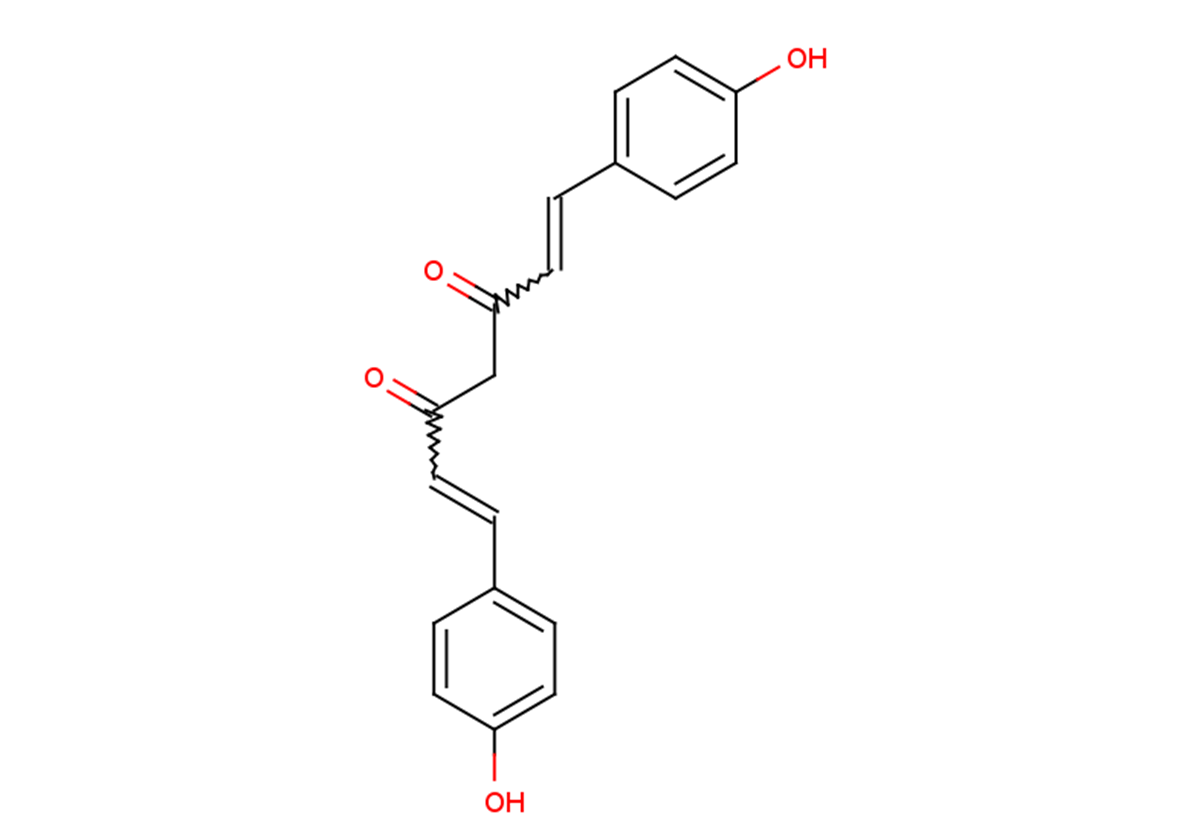Bisdemethoxycurcumin
| Code | Size | Price |
|---|
| TAR-TL0007-5mg | 5mg | £103.00 | |||||||||||||||||||||||||||||||||||||||||||||||||||||||||||||||||||||||||||||||||||||||||||||||||
| Special offer! Add £1 to your order to get a TargetMol CCK-8 Kit. Read more here. | |||||||||||||||||||||||||||||||||||||||||||||||||||||||||||||||||||||||||||||||||||||||||||||||||||
Quantity:
| TAR-TL0007-1mL | 1 mL * 10 mM (in DMSO) | £107.00 | |||||||||||||||||||||||||||||||||||||||||||||||||||||||||||||||||||||||||||||||||||||||||||||||||
| Special offer! Add £1 to your order to get a TargetMol CCK-8 Kit. Read more here. | |||||||||||||||||||||||||||||||||||||||||||||||||||||||||||||||||||||||||||||||||||||||||||||||||||
Quantity:
| TAR-TL0007-50mg | 50mg | £179.00 | |||||||||||||||||||||||||||||||||||||||||||||||||||||||||||||||||||||||||||||||||||||||||||||||||
| Special offer! Add £1 to your order to get a TargetMol CCK-8 Kit. Read more here. | |||||||||||||||||||||||||||||||||||||||||||||||||||||||||||||||||||||||||||||||||||||||||||||||||||
Quantity:
| TAR-TL0007-100mg | 100mg | £234.00 | |||||||||||||||||||||||||||||||||||||||||||||||||||||||||||||||||||||||||||||||||||||||||||||||||
| Special offer! Add £1 to your order to get a TargetMol CCK-8 Kit. Read more here. | |||||||||||||||||||||||||||||||||||||||||||||||||||||||||||||||||||||||||||||||||||||||||||||||||||
Quantity:
Prices exclude any Taxes / VAT
Overview
Regulatory Status: RUO
Shipping:
cool pack
Storage:
-20℃
Images
Documents
Further Information
Bioactivity:
Bisdemethoxycurcumin (BDMC) is a natural demethoxy derivative of curcumin. It is a potent activator of macrophage phagocytosis, interacting with 1α, 25-dihydroxy vitamin D3 to stimulate amyloid-β clearance by macrophages (optimal stimulation at 100 nM BDMC) [1]. More stable than curcumin in physiological media, BDMC suppresses proliferation of cancer cells [2]. It down-regulates the transcriptional coactivator p300, suppressing the Wnt/β-catenin pathway, and inhibits LPS induction of iNOS expression [3].
CAS:
24939-16-0
Formula:
C19H16O4
Molecular Weight:
308.33
Pathway:
Chromatin/Epigenetic; Stem Cells; Cytoskeletal Signaling
Purity:
0.9934
SMILES:
Oc1ccc(cc1)C=CC(=O)CC(=O)C=Cc1ccc(O)cc1
Target:
Epigenetic Reader Domain; Wnt/beta-catenin
References
Sandur, S.K., et al. Curcumin, demethoxycurcumin, bisdemethoxycurcumin, tetrahydrocurcumin and turmerones differentially regulate anti-inflammatory and anti-proliferative responses through a ROS-independent mechanism. Carcinogenesis 28(8), 1765-1773 (2007).
Fiala, M., Liu, P.T., Espinosa-Jeffrey, A., et al. Innate immunity and transcription of MGAT-III and Toll-like receptors in Alzheimer?s disease patients are improved by bisdemethoxycurcumin. Proceedings of the National Academy of Sciences of the United States of America 104(31), 12849-12854 (2007).
Ryu, M.J., et al. Natural derivatives of curcumin attenuate the Wnt/?-catenin pathway through down-regulation of the transcriptional coactivator p300. Biochemical and Biophysical Research Communications 377(4), 1304-1308 (2008).



